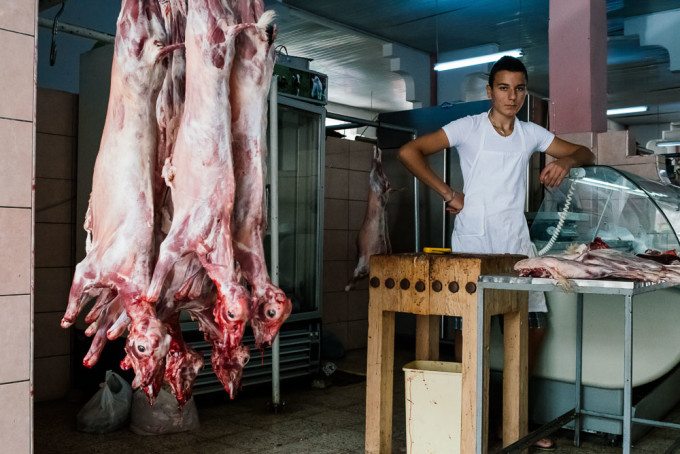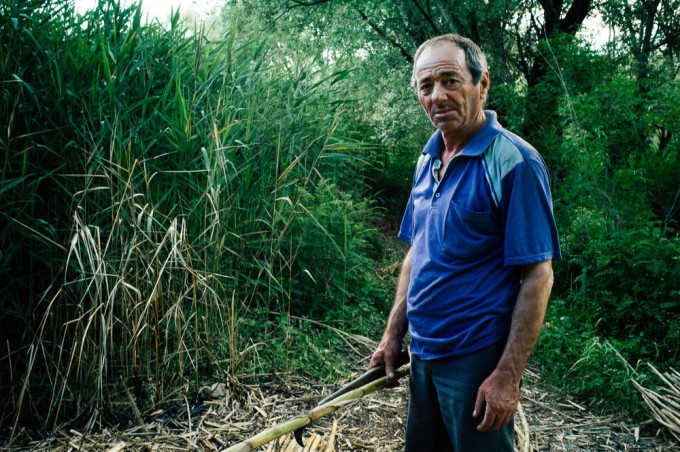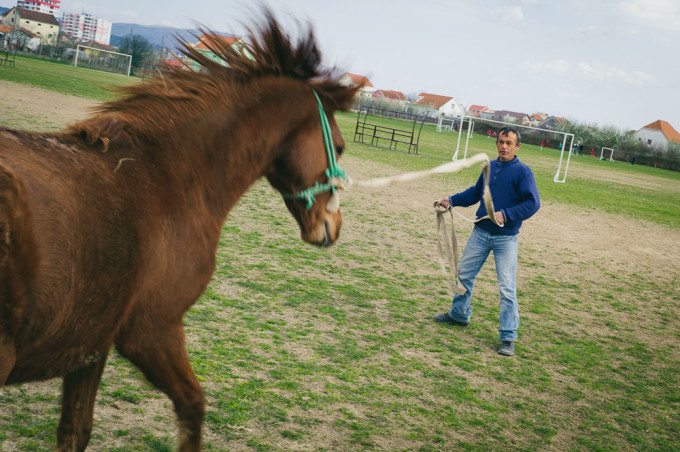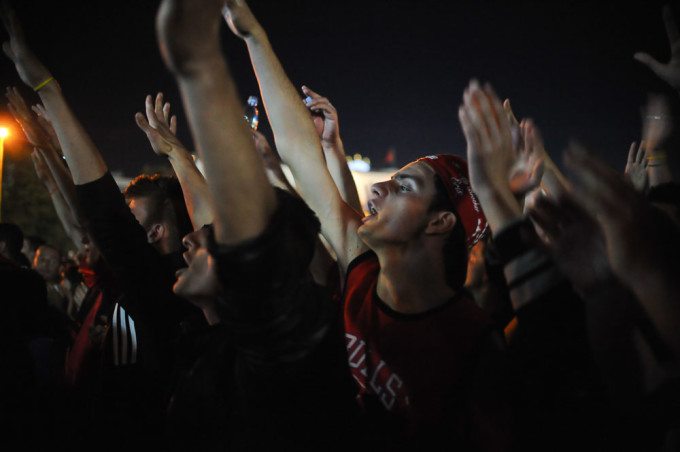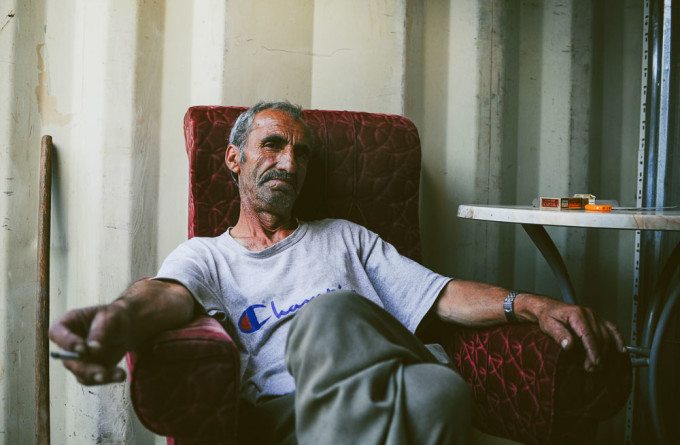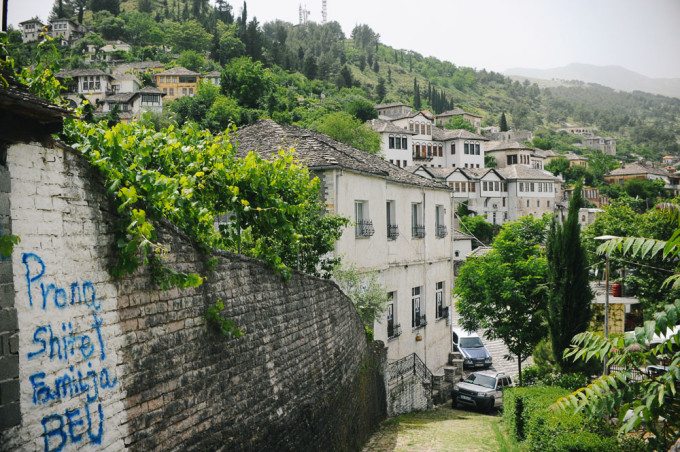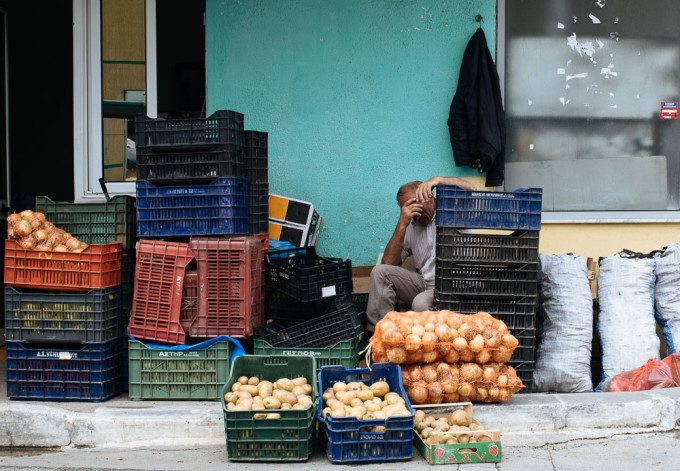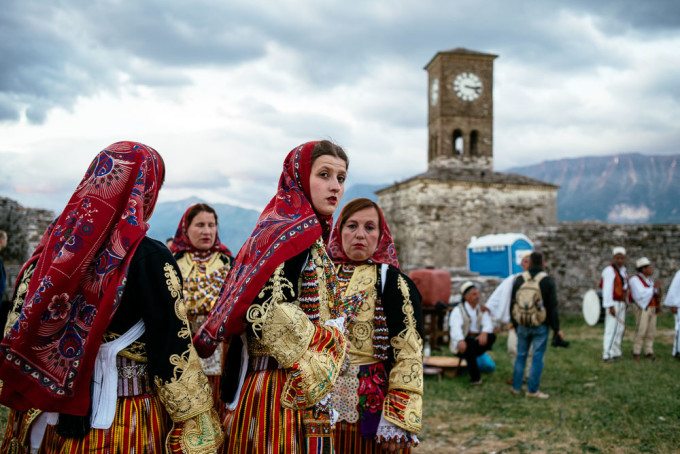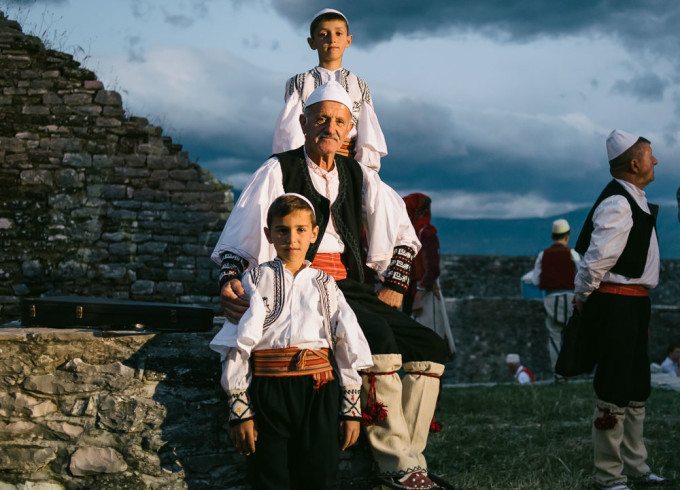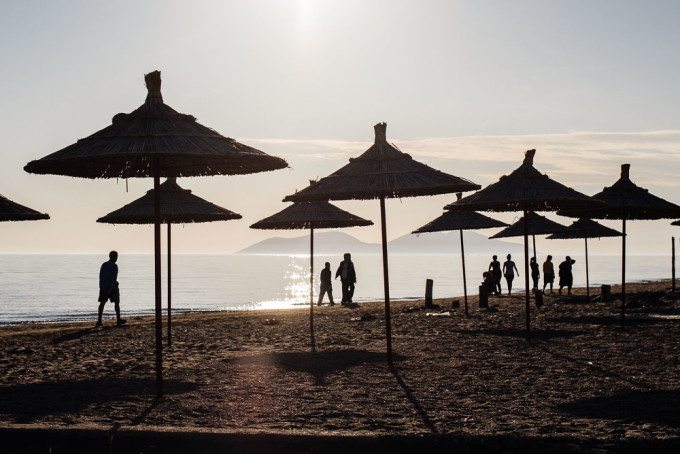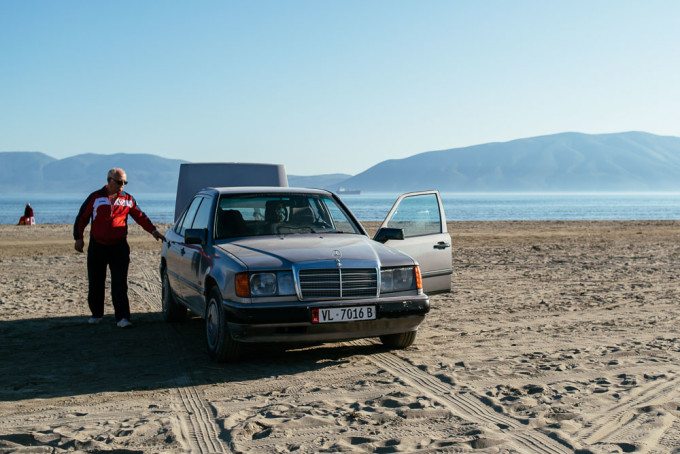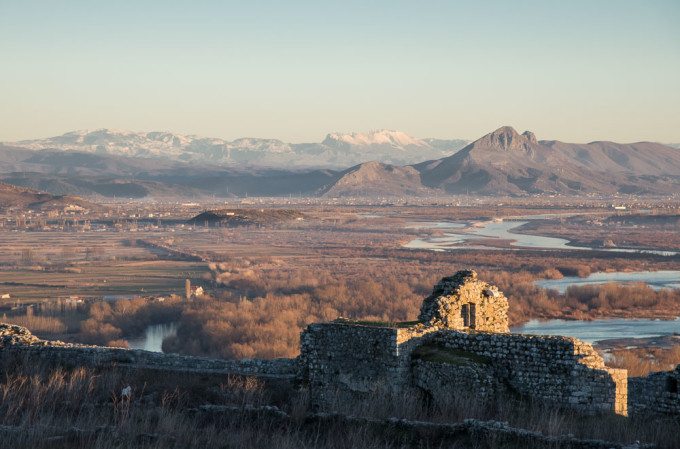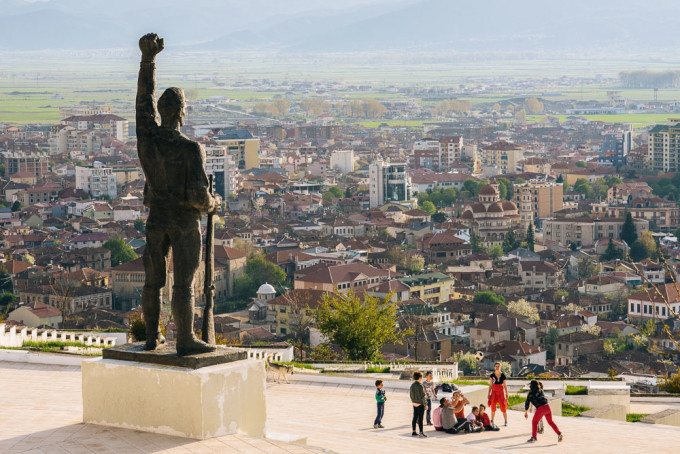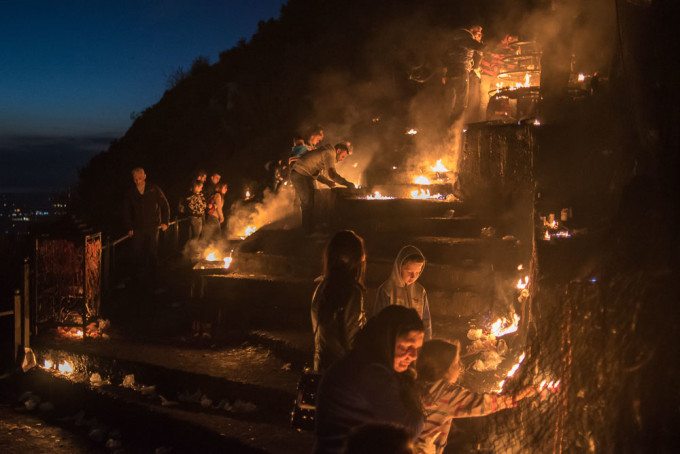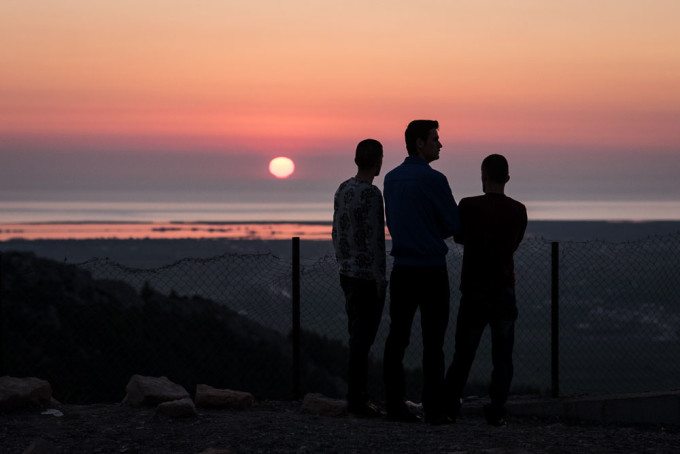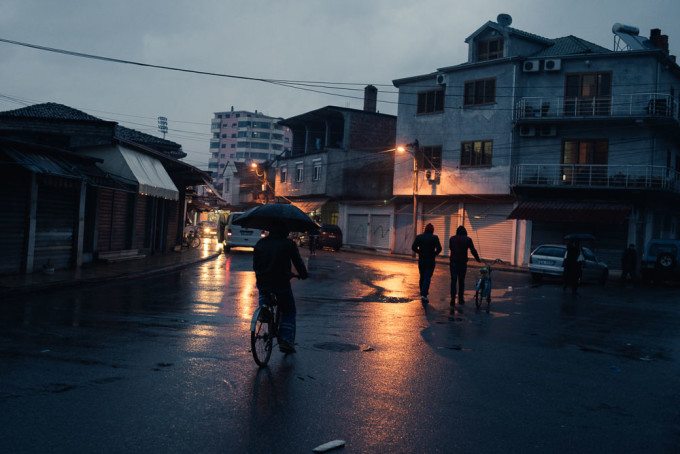Last Updated on 11/18/2015 by Chris Gampat
All images by Nick St. Oegger. Used with permission.
Nick St.Oegger is a California born Documentary Photographer currently based in the UK. “I’ve been involved with photojournalism for a number of years now, first working for more general news publications in southern California, but have been doing more documentary work recently.” says Nick to the Phoblographer in his introductory email.
He’s spent some time trying to document the Balkan area, but not the stories that everyone else sees. His project, Not a Country for Dreams, deals with this idea of Albania still being very much in this state of limbo, recovering from almost 50 years of communist rule (the country was almost as isolated as modern day North Korea) and essentially a 500 year history of occupation before that. It’s about how Albania as a country and as a people are trying to make sense of their place and identity in the world.
His work tries to give them a voice.
Phoblographer: Talk to us about how you got into photography.
Nick: My first camera was a cellphone, way back in 2004. The quality was horrible but I got really hooked on wandering around and taking photos of different compositions, I was especially interested in landscapes as I grew up in Santa Barbara, California and there was no shortage of beautiful places to shoot. It was really just a meditative process for me, never something I thought I would pursue as a career.
Phoblographer: What got you into documentary work?
Nick: My last year at University was an important time for me. I was finishing a philosophy degree and since childhood I had thought I wanted to be a lawyer, so I was preparing to head to law school. I had a bit of a crisis though where I realized after all this time, law wasn’t what I wanted to do.
A friend posted a link to me on Facebook one day, to the documentary War Photographer, about photojournalist James Nachtwey. I watched this documentary, and when I was finished I just stared at my computer screen for about ten minutes. Something clicked inside of me and I knew this was the type of work I wanted to do.
It just seemed so important to me, taking a camera and using it to tell people’s stories, to raise awareness about places or issues that others may be totally unaware of. Growing up in a very affluent area, it was always my intention to use the freedom afforded me by circumstance to help others who have none. I don’t have any notions that I’m going to completely change the world with my work, but my hope is to let people into worlds they may know little about, to increase empathy and this sense of humanity that I feel, now more than ever, we really need.
Phoblographer: What made you suddenly want to go photograph the Balkan area despite what everyone told you about it?
Nick: The first image of death that I ever saw was from the war in Bosnia, sometime when I was a child. The war there and in Kosovo ended, and I was always sort of left wondering what was going on there now. So much of what we think of a place is formed from what we see on the news. People hadn’t really heard about the Balkans maybe since the 90s when the wars were going on. So that’s what the place still was in people’s minds, that’s why they told me “oh don’t go there, it’s probably dangerous.” So part of it was definitely curiosity to see what was happening there.
Albania specifically, was totally off my radar, I knew nothing about it. My decision to go there was purely based on intuition though, one day I was in Athens and had a plane booked to Italy, but something was itching inside of me, telling me to go to Albania. I didn’t make that flight. I went down the street with my backpack, bought a ticket for the first bus there knowing nothing about it, and I never looked back. In a certain way I believe it was fate, I feel this very deep spiritual connection to the country, that I’m tied to it’s people.
Phoblographer: So when you first started this project, what was your plan? Did you know where you wanted to go? What precautions did you take?
Nick: The project first started because I had returned to Albania in the fall of 2013 to work on a story about these vendettas that take place in northern parts of the country. I returned at the beginning of this year a third time, originally to follow up with this same story. But I sort of realized that this was a story that had already been told, and to be honest, Albanians are kind of tired of people coming to work on it because it’s just another negative aspect of their country. So I was looking back through some of my general photos from the country and realized I may have the beginnings of a different documentary project. I started to chart out keywords about Albania, things that I found captivated me about the country. Then I went out to sort of shoot these ideas.
I have spent a lot of time in the northern city of Shkoder, it’s kind of my base and second home. I have a great support network there, and I planned out different trips to places in the country. This gave me the advantage of having one place I knew really well and could feel at home at, but also being able to get out to different cities or remote areas for a few days to get shots there. As far as precautions, it’s a pretty safe country overall, but there are remote areas in the mountains that can get dangerous because of their isolation. Having network of trusted people is important, they are able to give me good information or put me in touch with someone who knows a specific area better.
Phoblographer: How did you gain the trust of the people there to do this project?
Nick: Part of this was luck. Albanians are very friendly to foreigners, especially Americans. I became friends with people simply because they wanted to talk with an American. I joke that about 90% of my time in Albania was spent drinking coffee with people, but sometimes it seems like it was. Being open to people, spending time with them as a friend, helping them out if they need it, these are all very important things. Language is also a tool I think is highly underrated, and is almost more important to me than my camera. I took the time to learn enough Albanian to generally converse with people. The amount of doors this opened up for me is amazing. Albanians are proud of their language, it’s totally unique in the world, and when they find out you have taken the time to learn even a little bit of it, they will have respect for you.
It also shows that you are investing something as well, you are meeting them on their level and not just showing up as some tourist or parachute journalist to take a couple pictures and leave. There’s also this important sense of vulnerability when you walk into a village alone, and start speaking to people in their language. I think you have to make yourself vulnerable to do good work because you are the one with this device that is capturing other people, you have to give something of yourself in order to take.
Phoblographer: What do you think this project has taught you about being a better photographer since you started doing it?
Nick: I think one of the most important things I’ve learned is the importance of really building up a good network of friends or people you trust wherever you are trying to work. I owe so much to my friends in Albania, or even just regular people on the streets who have helped me out. The photographer David Alan Harvey has been a huge influence on me, in part because of his philosophy of needing to integrate into a community to take photos.
A friend asked me how I was going about doing my work, and I simply told her “I’ve been living.” If you live somewhere a long time, you make friends, you go to events, you take part in regular daily life, the photos will just come to you. I stopped thinking in terms of being this person hunting for the next photo, finger poised on the shutter button, and really took the time to make relationships with people and in communities. You have to be a human being first, and then your subjects will open up to you, or better yet, become your friends.
Phoblographer: What is your favorite photo from this series and why?
Nick: I think my favorite photo is probably the shot of the older man and his two grandchildren in traditional dress. This was taken at the National Folklore Festival this year in Gjirokaster, which is held every four or so years. They were backstage about to perform, and the kids were being kind of wild as they will, but when I approached them the old man gestured to them and told them to look. When they saw me the kids stopped and posed themselves.
You could see on their faces this instant sense of pride, even as children, like they understood how important what they were taking part in was. This moment and that festival really embody this important idea about Albania, how much their culture and identity as Albanians means to them. The festival was this time when people from all over the country gathered and they put aside politics, religion, corruption, poverty, and everything else that is bad in the country, and they just relished in being Albanian, in embracing their ancient history and beautiful traditional music. This is something I feel has been lost in so many societies, and is one of the reasons I keep going back to Albania.


